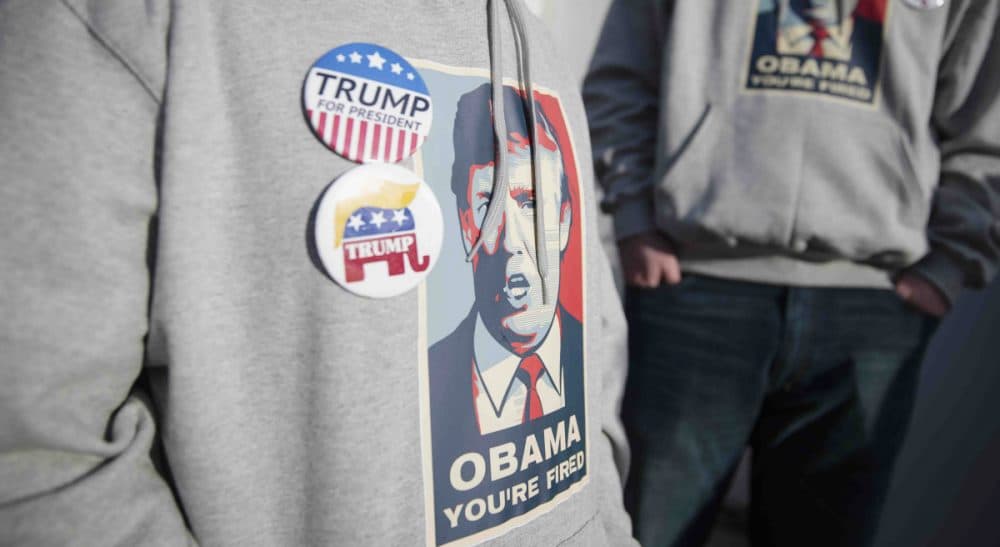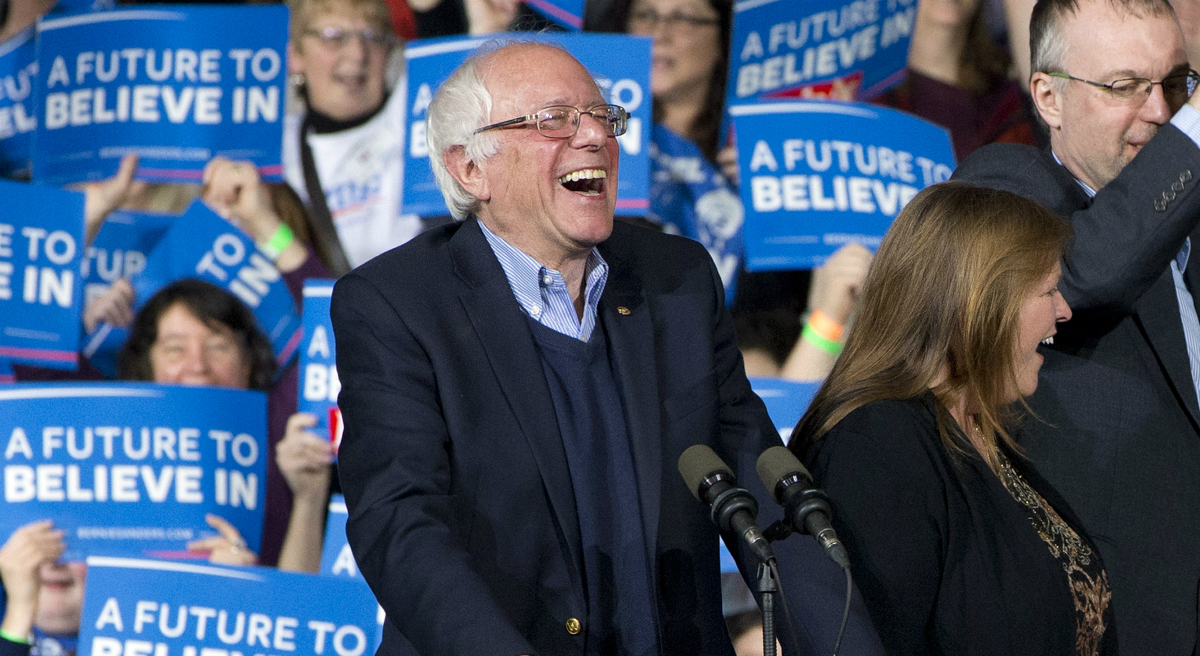Advertisement
On Super Tuesday, Sanders Feels The Burn Of High Voter Turnout — For Trump

"In order to win this struggle, we are going to need nothing less than a political revolution, and let me tell you what I mean by a ‘political revolution.’ When, as was the case in this last election in November [2014], when 63 percent of the American people chose not to vote, when 80 percent of young people, when 75 percent of low-income workers, chose not to vote, what we need to do is create a momentum so that 70, 80, 90 percent of the people vote. And when that happens, we win hands down.”
-- Bernie Sanders, March 31, 2015
Oops.
Voters this year have made a down payment on Sanders’s dream, flooding polling places in record numbers — but on the Republican side. Democratic turnout in the early nominating contests actually slid from 2008, the last time that party had a contested primary fight. In the run-up to Super Tuesday’s 11-state vote-fest, election officials in several states predicted more record GOP voters, and while the numbers are still being counted, it’s clear Republican turnout Tuesday was, to paraphrase Donald Trump, yuge. Massachusetts did break its previous high for Republicans showing up to vote.
We grant everyone the right to vote, as a free society must, but if the terminally uninformed voluntarily abstain, how lucky can we get?
There’s a moral here. As with most of his views, Sanders’s bemoaning of our anemic voter turnout has been a meme throughout his political career. The first time I met him, as a young reporter during his 1986 run for Vermont’s governorship, the then Burlington mayor explained that his definition of “socialism” included an engaged electorate in which people voted, en masse, for their leaders. It was a beguiling vision—until you paused to think about it.
Then as now, a substantial slice of the population was comatose vis-à-vis current events. In a country in which a 2011 survey of 1,000 Americans found 29 percent couldn’t name the vice president, almost three quarters didn’t know why we waged the Cold War, and 6 percent “couldn’t even circle Independence Day on a calendar,” do we really want the least knowledgeable folks lavishing their ignorance on our election returns? I thought, contrary to Sanders, that we had the best of both worlds: We grant everyone the right to vote, as a free society must, but if the terminally uninformed voluntarily abstain, how lucky can we get?

It seems our luck has run out. Analysts agree that Trump, running a campaign of racial hostility and xenophobia, is a big reason for the robust Republican turnout. There has been a surprising demographic breadth to his voters, but his strongest support, which kept him aloft in the pre-primary polls all those many months, includes people who make less than $50,000 a year and those without a college degree. In short, many working class people (white ones, anyway) are siding with Trump, despite Sanders’s insistence that “we win hands down” with those voters. (It won’t do either to say that higher Democratic turnout would necessarily benefit Bernie. When Democrats broke records in 2008, they nominated Barack Obama, whose centrist politics infuriate the party’s left.)
Perhaps misreading the politics of high voter numbers was to be expected of the Sanders campaign; numbers aren’t its strong suit. It issued a health care plan based on voodoo math and trumpeted one economist’s declaration that Bernie-nomics would produce literally incredible growth, only to have the professor admit that he disagrees with conventional economic analysis, which dismisses the Sanders plan's unrealistic growth estimates.
Advertisement
Sanders’s failure to foresee that many new voters might, you know, disagree with him ignored Thomas Franks’s famous book, "What’s The Matter With Kansas?," which argued that low-income Americans often vote against their own economic interests.
...do we really want the least knowledgeable folks lavishing their ignorance on our election returns?
But in fairness, I only worried that new voters might be ill-informed. I never predicted they could be palm-sweaty frightening. A set of surveys showed that roughly one third of South Carolinians who voted for Trump in that state’s primary want to bar not just Muslims but gays from entering the country and believe in white supremacy. I wouldn’t bet that many of them would recognize Joe Biden or celebrate Independence Day on July 4.
One thing is certain, however. Notwithstanding his political and economic myopia, Sanders is a good person, and no good person would crave the support of such voters. Then there are candidates who can’t decide whether they like white supremacists or not. We’ll learn how far that gets you in this, the year that the alleged Utopia of Voter Participation descended on America.
